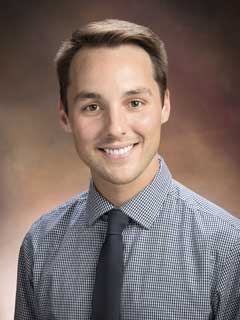HOW CAN WE HELP YOU? Call 1-800-TRY-CHOP
In This Section
Chief Innovation Officer, FUSED Awards, Preclinical Models Portal, Kidney Stones

Our first research news roundup of the new year highlights Susan Furth, MD, PhD, as a 2024 "Chief Innovation Officer to Know," and four winners of the inaugural FUSED awards for their research to improve outcomes using point-of-care ultrasound. The Washington Post also featured one of Children's Hospital of Philadelphia's leading experts in pediatric kidney stone disease, Gregory Tasian, MD, MSc, MSCE. This and more In The News.
Dr. Susan Furth Honored as 'Chief Innovation Officer to Know'
Congratulations to CHOP's Executive Vice President and Chief Scientific Officer, Susan Furth, MD, PhD, who is recognized by Becker's Hospital Review team as one of 36 visionary leaders for her accomplishments cultivating forward-thinking solutions and dynamic partnerships that serve to catalyze innovation in multiple fields, including cell and gene therapy research, and omics and big data initiatives. Under her leadership, the Research Institute also supports underrepresented populations from high school through postdoctoral training in programs related to science, technology, engineering, math, and medicine.
"I am honored to be recognized by Becker's Healthcare as one of 36 Chief Innovation Officers of 2024," Dr. Furth said. "This recognition is a tribute to the innovative, creative, and forward-thinking investigators and research teams at CHOP, who so passionately pursue research to understand and mitigate the underlying biology and environmental impacts resulting in childhood disease. My role is to foster an environment that facilitates their ability to create life-changing solutions for these children and their families. I am truly fortunate to work with such a cadre of talented people and this award reflects their efforts."
Read the Becker's Hospital Review press release to learn more.
Review Highlights Disparities in Early-onset Sepsis Research
A review conducted by researchers from CHOP's Division of Neonatology and the Centers for Disease Control and Prevention analyzed the epidemiology, microbiology, and current controversies in practice when it comes to treating neonatal early-onset sepsis (EOS).
"Early-onset sepsis is a substantial contributor to neonatal morbidity and mortality in the United States and across the globe," said attending neonatologist and study author Dustin Flannery, DO, MSCE. "In this review, we highlight the current epidemiology, microbiology, and clinical controversies related to neonatal EOS and identify research priorities to address gaps in knowledge, improve diagnostic accuracy, optimize treatment strategies, and enhance preventive measures to reduce the burden of early-onset sepsis in neonates."
EOS occurs when maternal pathogenic microbial species from blood or spinal fluid are exposed to the fetal compartment during labor and delivery, colonizing in and infecting the infant in the first three to seven days after birth. By studying the epidemiology and microbiology of EOS as described in previous studies, Dr. Flannery and colleagues shed light on possible leading causes of EOS that could help inform evidence-based risk assessments to better diagnose patients, especially in low-to-middle income countries.
Researchers also analyzed four of the most prominent controversial practices in EOS prevention and care that could help guide future therapeutic and prevention studies, particularly when it comes to the best time to treat suspected EOS and the available antibiotic options.
The study appears in Clinics in Perinatology.
FUSED Award Winners Seek to Improve Patient Outcomes
The Focused Ultrasound in Education (FUSED) Program selected winners for the inaugural FUSED Awards, which aim to foster the growth of exceptional point-of-care ultrasound (POCUS) education and research leaders at CHOP. These projects were selected for their potential to make significant advancements in POCUS education and clinical application, ultimately improving patient outcomes at CHOP and beyond.
Abin Abraham, MD, PhD, a resident in the Division of Neonatology, addressed neonatal respiratory distress by combining artificial intelligence (AI) and point-of-care lung ultrasounds for neonates within 72 hours of life in his project, "Integrating Artificial Intelligence with Lung Ultrasounds to Predict Surfactant Therapy in Neonatal Respiratory Distress." The goal is to build AI models trained on a multi-institutional cohort of preterm and term neonates to predict the need for surfactant therapy or escalating respiratory support, enhancing real-time clinical decision making.

Naomi Brown, MDr
Francis-Olivier Beauchamp, MD, a fellow in the Pediatric Intensive Care Unit, researched hypotension, shock states, and acute kidney injury in children hospitalized in pediatric intensive care units for his project, "The Pediatric Venous Excess Ultrasound Score." He used the VExUS scoring system, which combines Doppler waveform analysis of the renal, hepatic, and portal veins with inferior vena cava diameter measurement, to predict fluid overload and improve fluid management decisions.
Director of Primary Care Sports Medicine Naomi Brown, MD, focused on diagnosing and treating distal radial physeal stress syndrome (gymnast wrist), an overuse injury common in athletes like gymnasts and cheerleaders. Her project, "Reliability and Validity of Ultrasound-Based Distal Radial Physeal Width," proposes using point-of-care ultrasound as a reliable, cost-effective, and radiation-sparing method to evaluate the distal radial physis, offering an alternative to time-intensive and costly MRI.
Elliot Greenberg, PT, DPT, PhD, a research scientist in the Orthopedic Center, used his project, "Utilizing POCUS to Evaluate Humeral Retrotorsion in Injured Throwing Athletes," to study shoulder and elbow injuries in young athletes, particularly overhead throwers, who experience a high incidence of these injuries due to open growth plates. By using point-of-care ultrasound, the project will collect detailed measures of humeral retrotorsion (HRT) in injured and uninjured athletes to understand its impact on shoulder range of motion, pain, and functional capabilities.
Congratulations to the winners!
FUSED is dedicated to promoting the use of POCUS to enhance clinical care delivery and solidify CHOP's reputation as a global leader in pediatric care.
CHOP Scientist Featured in Washington Post for Kidney Stone Research
An article published in the Washington Post quoted one of CHOP's leading experts in pediatric urology, Gregory Tasian, MD, MSc, MSCE, to help explain why it is important to study the rise of kidney stones in children and varying methods of treatment, including surgery.
Although kidney stones affect children and adults in similar ways, Dr. Tasian stressed the importance of understanding the difference between pediatric and adult profiles. "[Children are] young. They're healthy," Dr. Tasian said in the Post article. "They don't generally have comorbid conditions."
As an attending urologist and Surgical Director of the CHOP Kidney Stone Center, a new Frontier Program, Dr. Tasian studies how to improve surgical outcomes and diagnostic strategies for children with kidney stone disease through comparative effectiveness studies and machine learning of complex data.
Evidence around surgical and medical best treatment practices is "very weak," according to Dr. Tasian, whose work focuses on questions generated by patients so that knowledge can be quickly translated into their clinical care.
See the full article in the Washington Post.
Cell Line Database to Accelerate Pediatric Brain Tumor Research
In coordination with the Center for Data-Driven Discovery in Biomedicine, the Children's Brain Tumor Network (CBTN) has launched an accessible, free platform designed to accelerate the development of innovative therapies for young patients facing a brain tumor diagnosis.
The new research tool, the CBTN Preclinical Models Portal, lists resources that contain pediatric brain tumor-derived in vitro grown cell lines as well as xenograft lines donated from patients and their families. Grown in a laboratory, these cell lines act as a "living extension" of tumor growth outside a patient's body and are crucial to helping scientists understand tumor biology, uncover biomarkers, and screen potential therapeutic interventions.
This groundbreaking resource streamlines the process of cell line selection by offering a comprehensive and transparent view of the pediatric brain tumor models available from CBTN. With its user-friendly interface and filtering features, researchers can quickly identify models relevant to their specific brain tumor diagnosis. The platform will continue to evolve as CBTN works to incorporate all data into the Kids First Data Resource Portal by June.
Learn more in this CBTN blog post.
ICYMI
Catch up on our headlines from our Dec. 20 In The News:
- Joseph St. Geme and Dr. Meryl Cohen Inducted into College of Physicians
- Collaborative Research Develops AI-based Targeting Technology for Immunotherapy Using CARs and BiTEs
- Phase 2 Study Results Build Evidence for Larotrectinib as Frontline Treatment Option for Infantile Fibrosarcoma
- CHOP Investigators Present at American Society of Hematology Annual Meeting
Keep up with our news, stories, and updates in real time by following us on X, Facebook, LinkedIn, or Instagram. Meet the minds behind the science in the Bench to Bedside podcast. Or subscribe to our newsletter to receive an email every other Friday.





